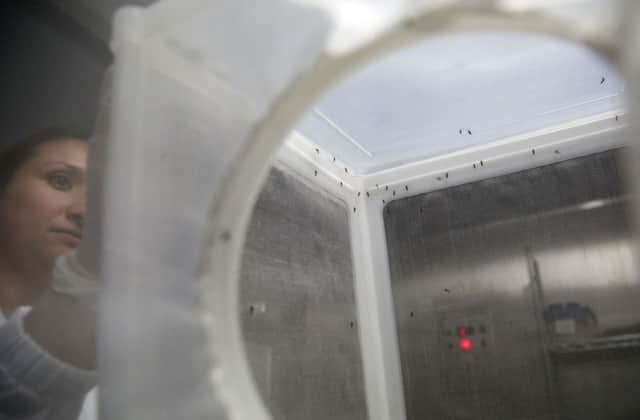Zika '˜may be more dangerous than thought' warn scientists


They said that Zika could be behind more damaging neurological conditions, affecting the babies of up to a fifth of infected pregnant women.
Rates of increase in Zika infection in some parts of Brazil have slowed, thanks to better information about preventing the disease.
Advertisement
Hide AdAdvertisement
Hide AdBut the search for a vaccine is still in the early stages. Most doctors and medical researchers now agree that there is a link between the Zika virus and microcephaly, where babies are born with abnormally small heads because of restricted brain development.
While it is estimated that 1 per cent of women who have had Zika during pregnancy will have a child with microcephaly, leading doctors in Brazil said that as many as 20 per cent of Zika-affected pregnancies will result in a range of other forms of brain damage to the baby in the womb.
A separate study, reported in the New England Journal of Medicine, said that “29 per cent of scans showed abnormalities in babies in the womb, including growth restrictions, in women infected with Zika”.
“Our findings are worrisome because 29 per cent of ultrasonograms showed abnormalities, including intrauterine growth restrictions and foetal death, in women with positive Zika infection,” the study said.
A rare nervous system disorder, Guillain-Barre syndrome, that can cause temporary paralysis has been linked to the infection. There is no vaccine or drug treatment so patients are advised to rest and drink plenty of fluids.
Many of the conditions that Brazilian doctors are noticing in babies born to mothers who had Zika are not as obvious to the untrained eye as microcephaly. They may not have the same impact on the child’s development either but the frequency with which they are occurring is alarming.
Doctor Renato Sa is a senior obstetrician who works in both public and private hospitals in Rio de Janeiro.
He says there is a long list of other conditions affecting babies born to mothers who had Zika.
Advertisement
Hide AdAdvertisement
Hide Ad“There are cerebral calcifications, an increase in the number of dilation of cerebral ventricles and the destruction or malformation of the posterior part of the brain,” he said
He added that an added concern is that often there is no obvious sign or symptom of the neurological damage until later observations of the child’s development, “perhaps convulsions or other tell-tale signs”.